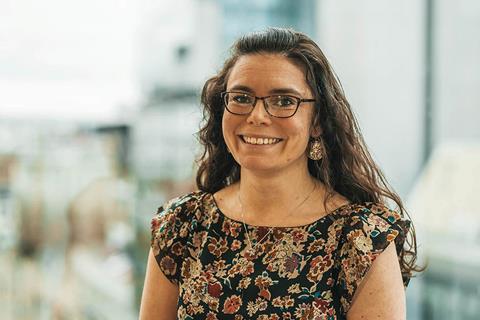President of the Association of Personal Injury Lawyers
I grew up seeing injustices in the world. I remember taking part with my dad in the Boycott South Africa campaigns of the 1980s, and watching news of the Tiananmen Square massacre in disbelief that such things could happen. I wanted to find a job in which I could help others and make a difference to people’s lives. I had a notion that being a lawyer could mean being someone who could change things for the better.

I went to an ordinary comprehensive school in the East Midlands and a sixth-form college to do A-levels. The careers adviser told me that becoming a solicitor was not for ‘people like me’, that it was very competitive, and that I should consider teaching. I ignored the advice, looked up the top 10 universities for law and applied to a number of them. I was accepted at the University of Sheffield where I obtained a first-class degree.
I was offered a number of jobs, including one at Pannone solicitors in Manchester. I fancied living in Manchester as it seemed an exciting place and reassuringly northern. After my LPC and qualifying at Pannone, I did a mixed bag of PI work, specialising in industrial disease and asbestos work. I also worked on inquests and actions against the police. Following the merger with Slater and Gordon in 2014, I became a principal lawyer in both their abuse and disease teams, moving over to abuse work full-time. I now jointly head up the abuse and public inquiries team.
I want to continue the important work the Association of Personal Injury Lawyers is doing to increase diversity and participation at all levels of the organisation. I want to forge ahead with our groundbreaking Rebuilding Shattered Lives campaign. We are also calling for reform of the outdated law on bereavement damages, and for asbestos-related lung cancer victims to receive full compensation.
The government must also implement the recommendations from the Independent Inquiry into Child Sexual Abuse (IICSA). This includes abolishing the limitation period for child sexual abuse survivors to align English and Welsh law with Scotland. That is quite a lot to be getting on with, but I am keen that APIL continues to campaign on the key issues that matter to injured and bereaved people.
'When I started to read the evidence and meet the bereaved families in the Manchester Arena Bombing Public Inquiry, I could not sleep for a while'
I was involved in IICSA and with my colleague Richard Scorer represented more than 100 victims and survivors. Listening to the evidence of survivors was hard but it was incredibly rewarding for them to feel heard. Something I found much tougher was representing half of the bereaved families in the Manchester Arena Bombing Public Inquiry. I thought I was pretty tough as I had already dealt with some appalling cases. But when I started to read the evidence and meet the bereaved families, I could not sleep for a while. I felt incredibly impacted by what I was reading and the information that I had to go through with my clients. I had some of the most difficult conversations I have ever had. My clients were the most incredible people I have ever had the privilege to meet and I felt a huge sense of responsibility to do right by them all.
That inquiry permanently changed my view of the world. I fear that if a similar terrorist atrocity occurred again, we would have a considerable period of time where we would have to fend for ourselves before help could come. Confronting that reality resulted in me undertaking two training courses, on first aid and bleed control. I felt the need to equip myself in a way I did not before I listened to the inquiry’s evidence. I have also shown my kids how to stop a bleed and how to apply a tourniquet. This stuff should be taught in all schools and large workplaces.
I have dealt with many cases over the years where either my clients wanted to stay out of the media or wanted the media to hear what had happened to them. The key is to remember that it is not about you – it is about the client and letting their voice be heard.
I try very hard to maintain a separation between home and work. The pandemic made that impossible. For the first time, I worked from home doing child sexual abuse cases and the IICSA inquiry, while home-schooling two primary-age school children and trying to shield them from the reality of the work that I was doing. I am now back in the office a lot, which helps maintain a work/life separation.































No comments yet